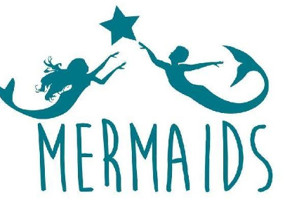The Charity Commission has removed a Jewish charity from its register after finding serious conflicts of interest at the organisation.
Its six-year-long inquiry into the Beth Yosef Foundation found that the charity failed to use proper financial controls and record keeping in relation to its management of properties.
The regulator appointed an interim manager to the charity last year, who then determined that it was not viable.
Property disposal
The regulator opened a case into the charity on 13 September 2016 because of its failure to submit annual returns and accounts since February 2012.
In a November 2016 meeting, concerns were identified around the way trustees had been appointed, loan agreements entered into by the charity, and their intended sale of charity property.
During the meeting, the Commission was informed that the charity was in the process of disposing of its property, the purchase of which had originally been financed by a loan.
It was also informed that the sale of the property had been triggered by the calling in of the loan, the terms of which included a provision that the lender was entitled to 80% of any sale proceeds. The charity’s lender was also the prospective purchaser.
The trustees had agreed a sale price of £1.3m with the purchaser but advised the Commission that due to other loans the charity would still have debts of about £100,000 following the sale of the property.
On 21 December 2016, the Commission opened a statutory inquiry into the charity.
Conflicts of interest
The inquiry found the trustees failed to provide any evidence that their appointments had been made in accordance with the charity’s governing document and that the ability of the trustees to effectively operate and manage the charity and avoid conflicts of interest was “seriously compromised” by the fact that two of the trustees were connected to the lender.
One trustee was the brother-in-law of the lender and another was the lender’s aunt.
It was also discovered that the trustees were linked to another charity, which had been permitted use of the charity property.
The inquiry found the trustees had a serious disregard for, and/or lack of understanding of, the importance of proper financial controls and record keeping.
Beth Yosef Foundation had entered into a number of unsecured loans with the lender, which included a £150,000 loan relating to the cost of converting the upper floor of the charity’s property into residential flats, completed by a company also owned by the lender.
On completion, the flats were managed and rented out on behalf of the charity by the lender’s wife and rental payments were collected by the lender. The trustees were unable to provide the inquiry with any records documenting their decision making regarding these matters.
It found a “secured loan” of £667,876.77 was borrowed by the charity in 2001 to finance the purchase of the property had been assigned to the lender,and to settle this secured loan, the trustees intended to sell the property but decided not to put the property on the open market, having agreed a private sale price of £1.3 million with the lender.
The lender called in the secured loan and initiated High Court possession proceedings in order to force a sale and recover his money.
The court order provided for the property to be sold at auction, and at the Commission’s request for any surplus funds owed to the charity to be held by the official custodian. Following completion of sale, £136,034.45 was received and held in trust for the charity.
The trustees informed the regulator that the charity was effectively dormant and had no income or bank account, however, the inquiry’s findings are not consistent with these assertions.
The inquiry also found that the charity’s bank account had been closed in April 2016 with a closing balance of £6,843.
Beth Yosef Foundation had been in receipt of rental income, in the region of £82,383 per annum, and substantial funds had been collected on its behalf by the lender’s company, though the charity’s lack of basic financial procedures exposed the charity’s funds to undue risk.
On 9 February 2021, the inquiry appointed an interim manager, who then determined that the charity was not viable.
The final account balance, after settling outstanding liabilities, amounted to £88,498. A charity that was willing and able to apply the remaining funds in line with the charity’s objects was found and residual funds were transferred to the receiving charity in February 2022.
No contact details for the charity were listed on the Commission's website.
Related articles












